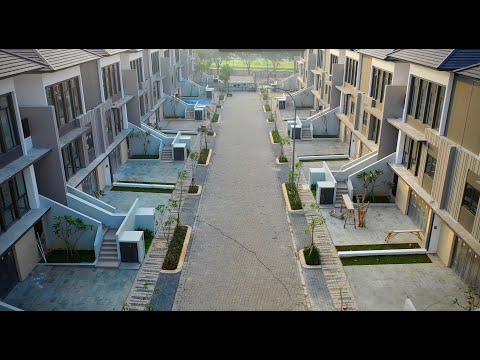
Understanding Negligence Lawsuits Against Apartment Complexes in Texas
Welcome to this informative article on understanding negligence lawsuits against apartment complexes in Texas. It is important to note that while this article aims to provide helpful information, it is always advisable to consult other reliable sources or seek advice from legal professionals for specific legal matters.
Now, let’s delve into the topic of negligence lawsuits against apartment complexes in Texas. When it comes to renting an apartment, tenants have certain rights and expectations regarding their safety and well-being. Apartment complexes are responsible for maintaining a safe environment for their residents, and failure to do so can lead to legal consequences.
📋 Content in this article
In Texas, as in many other states, a negligence lawsuit can be filed against an apartment complex if it is alleged that their negligence caused harm or injury to a tenant. Negligence refers to the failure to exercise reasonable care, resulting in foreseeable harm. To prove negligence in a lawsuit, the following elements must typically be established:
1. Duty of Care: The apartment complex has a legal duty to exercise reasonable care in maintaining the premises and ensuring the safety of its residents.
2. Breach of Duty: It must be shown that the apartment complex breached this duty of care by failing to take reasonable steps to prevent harm or by acting negligently.
3. Causation: There must be a direct link between the breach of duty and the harm suffered by the tenant. The harm should be foreseeable, meaning that a reasonable person could have anticipated it under similar circumstances.
4. Damages: The tenant must have suffered actual damages as a result of the apartment complex’s negligence. These damages can include medical expenses, pain and suffering, property damage, and other losses.
It is important to understand that each negligence lawsuit is unique, and the specific facts and circumstances surrounding the case will determine its outcome. The burden of proof rests on the plaintiff (the injured party) to demonstrate that the apartment complex’s negligence directly caused their harm.
Reporting Issues with your Apartment Complex in Texas: A Guide for Tenants
Understanding Negligence Lawsuits Against Apartment Complexes in Texas
Introduction:
Apartment living is a popular choice for many individuals in Texas. However, issues with apartment complexes can arise, such as negligence by the property management or owners. This article aims to provide an in-depth understanding of negligence lawsuits against apartment complexes in Texas, including the necessary steps tenants must take to report issues and seek legal recourse.
1. What is Negligence?
2. Elements of a Negligence Lawsuit:
To successfully pursue a negligence lawsuit against an apartment complex, tenants must establish the following elements:
3. Reporting Issues with Your Apartment Complex:
When encountering issues that may lead to a negligence lawsuit, it is crucial for tenants to report them promptly. The following steps can help tenants navigate this process:
Understanding Tenant’s Rights: A Comprehensive Overview of Potential Lawsuits Against Landlords in Texas
Understanding Tenant’s Rights: A Comprehensive Overview of Potential Lawsuits Against Landlords in Texas
Introduction:
Tenants in Texas have certain rights that are protected by law. When these rights are violated, tenants may have grounds to file a lawsuit against their landlords. This article will provide a comprehensive overview of potential lawsuits that tenants can bring against their landlords in Texas, with a particular focus on negligence lawsuits against apartment complexes.
1. Understanding Tenant’s Rights in Texas:
Tenants in Texas have the right to:
– Live in a safe and habitable dwelling.
– Receive proper maintenance and repairs from the landlord.
– Be given notice before any changes to the terms of the lease agreement.
– Enjoy the peaceful enjoyment of their rented premises.
– Have privacy and be free from unlawful discrimination.
2. Common Types of Lawsuits Against Landlords in Texas:
a) Negligence Lawsuits:
One common type of lawsuit against landlords in Texas is a negligence lawsuit. In these cases, tenants claim that their injuries or damages were caused by the landlord’s failure to meet their duty of care. For example, if a tenant slips and falls on a wet floor that was not properly cleaned or warned about, they may have grounds to file a negligence lawsuit against their landlord.
b) Breach of Warranty Lawsuits:
Another type of lawsuit is a breach of warranty lawsuit. In these cases, tenants claim that the landlord failed to uphold a specific warranty or guarantee stated in the lease agreement. For instance, if a landlord promises to provide air conditioning but fails to do so, the tenant may be able to sue for breach of warranty.
c) Retaliatory Eviction Lawsuits:
Retaliatory eviction lawsuits occur when a tenant believes they were evicted as retaliation for exercising their legal rights. For example, if a tenant reports a health violation to the authorities and is then evicted shortly after, they may have grounds for a retaliatory eviction lawsuit.
3.
Title: Understanding Negligence Lawsuits Against Apartment Complexes in Texas
Introduction:
Negligence lawsuits against apartment complexes in Texas are an important legal topic that requires a comprehensive understanding. This article aims to shed light on the key concepts surrounding such lawsuits. It is crucial for individuals involved in the rental industry, tenants, and legal professionals to stay current on this subject due to its significance in protecting the rights and safety of all parties involved. Readers are encouraged to verify and cross-reference the information presented here with relevant legal sources to ensure accuracy and applicability to their specific circumstances.
1. Definition of Negligence:
Negligence, in the context of a lawsuit against an apartment complex, refers to the failure of the property owner or manager to exercise reasonable care, resulting in harm or injury to tenants, guests, or others present on the premises. To establish negligence, the following elements must typically be present:
2. Types of Negligence Claims Against Apartment Complexes:
Negligence claims against apartment complexes can arise from various situations, including but not limited to:
